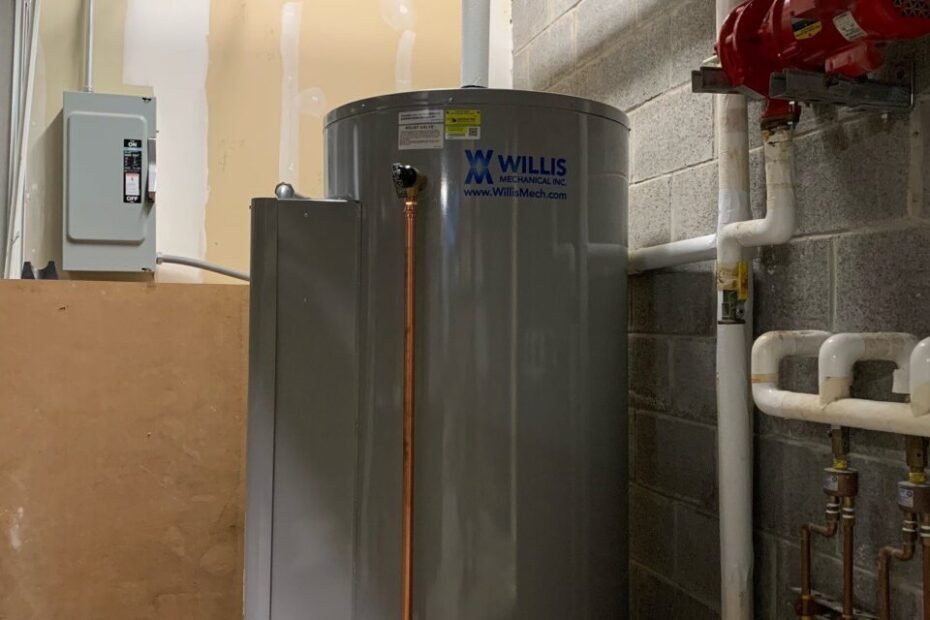When it comes to hot water heaters, both residential homeowners and commercial facility managers face the same dilemma: tankless water heaters or traditional tank water heaters? In this comprehensive guide, we’ll explore the differences between these two types of water heaters and provide insights into which option might be best suited for commercial facilities.
Understanding Tankless Water Heaters:
Tankless water heaters, also known as on-demand or instantaneous water heaters, offer a modern solution to hot water needs. They heat water directly as it flows through the unit, eliminating the need for a storage tank. Tankless water heaters are favored for their energy efficiency, space-saving design, and continuous hot water supply.
Benefits of Tankless Water Heaters:
- Energy Efficiency: For commercial facilities looking to reduce energy costs and environmental impact, tankless water heaters are an excellent choice. By heating water only when needed, these units avoid standby heat loss associated with traditional tank water heaters.
- Space-saving Design: Commercial spaces often have limited room for mechanical equipment. Tankless water heaters, with their compact and wall-mounted design, help maximize available space for other purposes.
- Endless Hot Water: In high-demand environments like hotels, restaurants, and fitness centers, tankless water heaters ensure a continuous supply of hot water, even during peak usage times.
- Long Lifespan: Commercial facilities can benefit from the long lifespan of tankless water heaters, which often exceed 20 years with proper maintenance.
Factors to Consider with Tankless Water Heaters:
- Upfront Cost: While tankless water heaters offer long-term energy savings, they typically have a higher upfront cost compared to traditional tank water heaters. Commercial facility managers must consider their budget constraints and weigh the initial investment against potential long-term benefits.
- Installation Complexity: Installing tankless water heaters may require modifications to existing plumbing and electrical systems. Commercial facilities should consult with experienced professionals to ensure proper installation and compliance with building codes.
- Maintenance Requirements: Tankless water heaters require regular maintenance, including descaling to remove mineral buildup and inspecting components for wear and tear. Facility managers should budget for ongoing maintenance to maximize the lifespan and performance of their tankless water heaters.
Understanding Traditional Tank Water Heaters
Traditional tank water heaters have been a staple in commercial facilities for decades, offering a reliable and cost-effective solution to hot water needs. These units store and heat water in a large tank, providing a ready supply of hot water for various applications.
Benefits of Traditional Tank Water Heaters:
Lower Upfront Cost: Traditional tank water heaters are generally more affordable to purchase and install compared to tankless water heaters, making them a budget-friendly option for commercial facilities.
Familiarity: Many facility managers are already familiar with traditional tank water heaters, which have a straightforward design and installation process.
Consistent Hot Water Supply: Traditional tank water heaters provide a consistent flow of hot water, making them suitable for commercial facilities with moderate to high hot water demand.
Ease of Maintenance: Traditional tank water heaters have fewer components and require less frequent maintenance compared to tankless water heaters, simplifying upkeep for facility managers.
Factors to Consider with Traditional Tank Water Heaters
- Energy Inefficiency: Traditional tank water heaters continuously heat water to maintain temperature, leading to standby heat loss and higher energy bills. Commercial facilities with high hot water demand may experience significant energy waste with traditional tank water heaters.
- Limited Hot Water Supply: The storage capacity of traditional tank water heaters is finite, meaning commercial facilities may run out of hot water during peak usage times. Facility managers must size their tanks appropriately to meet demand.
- Bulky Design: Traditional tank water heaters require significant floor space for installation, which may be a constraint in commercial facilities with limited room.
Choosing the Right Option for Commercial Facilities
When it comes to selecting the right water heater for commercial facilities, several factors come into play. Here are some considerations to help facility managers make an informed decision:
- Hot Water Demand: Commercial facilities with high hot water demand or fluctuating usage patterns may benefit from the continuous hot water supply provided by tankless water heaters.
- Energy Efficiency Goals: For commercial facilities looking to reduce energy consumption and operating costs, tankless water heaters offer superior energy efficiency and potential long-term savings.
- Space Constraints: Commercial facilities with limited space for mechanical equipment may prefer the compact design of tankless water heaters to maximize available space.
- Budget Constraints: While tankless water heaters offer long-term energy savings, they come with a higher upfront cost compared to traditional tank water heaters. Commercial facility managers must weigh the initial investment against potential long-term benefits and budget constraints.
In the debate between tankless water heaters and traditional tank water heaters, there’s no one-size-fits-all solution for commercial facilities. Facility managers must carefully consider their hot water needs, energy efficiency goals, space constraints, and budget limitations to determine the best option for their specific requirements. By evaluating the pros and cons of each type of water heater and consulting with experienced professionals, commercial facilities can select a hot water solution that meets their needs and delivers reliable performance for years to come.
